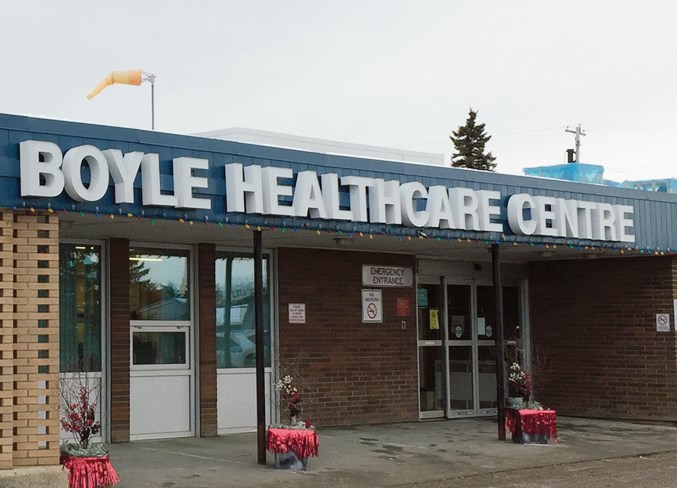ATHABASCA – It’s no secret Alberta is struggling with a nursing shortage; the Boyle Healthcare Centre has been partially closed for over two years and it’s not the only facility in the region dealing with shortages.
One solution Alberta, and the rest of Canada, has been investigating is internationally educated nurses (IEN) who’ve been trained in other countries but want to work here. But, the regulations around IENs are complicated, and it’s not uncommon for nurses to have to wait years for the process to complete.
Dr. Adedoyin Olanlesi-Aliu was one of those nurses. Born in Nigeria, she completed two university degrees in her home country before heading to South Africa to get her PhD in community nursing and family health. When she applied to move to Canada, the National Nursing Assessment Service (NNAS) took 18 months to complete her initial evaluation.
“There were barriers to accessing bridging programs and a lack of knowledge and support about the RN registration process,” said Olanlesi-Aliu in a July 22 interview. “As an IEN who has the lived experience of navigating the licensure process in Canada, I understand the challenges IENs face, and the opportunities that exist to improve the licensure process of IENs.”
Today, Olanlesi-Aliu is part of a Canada-wide team researching and evaluating provincial regulatory platforms that could improve the licensure process for IENs across the country.
“We’ll have funding for the next three years to look at how these different reforms for different licensure pathways and integration pathways for IENs are working across Canada,” said Dr. Kathleen Leslie, “We’ll evaluate some of these reforms and work towards a more equitable and predictable system in Canada.”
One of the challenges new IENs face in their licensure process is location — different provinces regulate licencing differently, so a nurse landing in Quebec will have a different experience than one who gets off a plane at Edmonton.
“Our diverse partners, including IENs, regulators, educators and employers, have identified the urgent need for more evidence to identify the most effective and equitable licensure pathways to support IEN integration into the Canadian healthcare system,” reads the research abstract.
What that looks like is yet to be determined. The project received over $1 million from the Canadian Institutes of Health Research for the project, including $360,000 for the research hub, which will be a milestone for AU.
“Not only did our team receive funding for this project, but we were also selected to lead the evidence support and knowledge mobilization hub,” said Leslie. “That’s a first for AU, to have this sort of health workforce research hub.”
The hub will help support and spread the knowledge found in the 15 different projects — other researchers are looking at eating disorders, sustainable healthcare in rural and remote communities, and more — as well as ensure researchers have rapid access to the evidence they need and are communicating their findings with others.
Dr. Houssem Eddine Ben-Ahmed is another researcher on the project. Originally from Tunisia, he also underwent a journey as in internationally educated nurse before completing his PhD at the Université de Montréal.
“The success of the project will be when internationally educated nurses feel satisfied with the pathways. They don’t face the bureaucratic obstacles, the time consuming and the costs they need to pay to open their exams,” said Ben-Ahmed. “We would like to hear them say, ‘Okay, I came to Canada, but it was easy for me to be integrated within the Canadian health workforce because this pathway helped me do that.’”



